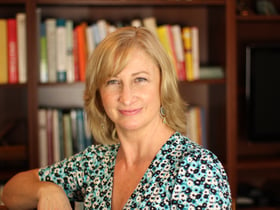How To Save Your Marriage When You and Your Partner Have Opposite Personality Types and the Differences are Driving you Apart.
They say that opposites attract, and that can certainly be a good thing for a happily married or coupled-up pair of people who are, indeed, polar opposites.
Still, it can be scary to discover that the person you've fallen in love with, married, and are building a life with is actually very different from you.
Personality type compatibility is certainly important, but rather than dwelling on it; it might help you to know that this isn't uncommon in even the healthiest of relationships.
You and your partner probably see many of life's challenges and opportunities from unique perspectives, and you'll likely have different approaches to handling the ups and downs.
The key to saving your marriage under these circumstances lies in not mistaking your individual differences for incompatibility.
When you take a step back to discover how your differences may be complementary within the context of your relationship, you may just find that having the opposite personality type of your partner can be the best recipe for a wonderful marriage!
Before I go any further, it's important to recognize that having different personality types doesn't mean you and your spouse or partner shouldn't share similar values. In fact, for a strong and enduring marriage, a shared set of core family values is essential.
But not only is it possible to save your marriage when you and your partner have different personality types, but those differences are also often what helps long-lasting, happy marriages thrive.
Let's face it; the early stage of romantic love is exciting.
Scientific research shows that "During the lust phase, the neurotransmitter phenylethylamine (PEA) increases," helping to fire off norepinephrine and dopamine, the neurochemicals responsible for creating that familiar sense of exhilaration we know as the thrill of new love.
By studying the functional MRI images of more than 2500 people in love, biological anthropologist Dr. Helen Fisher found that when we view an image of someone we love, the brain reacts in a similar way it does to using cocaine. This may mean, she posits, that our judgment is at least a bit impaired when it comes to romance.
Another confusing factor in an initial attraction to someone is the newness itself.
You and your flame are embarking on an exciting, fresh adventure. Not only is what's going to happen on this journey unknown, but your traveling companion is a mystery in and of themselves. And because you're currently under a state of intoxication, you're unlikely to see your new partner with clarity. Instead, you project onto them all of those things you hope and wish them to be, while simultaneously dismissing or blinding yourself to the things about them you don't like.
Eventually, those chemicals wear off, and you're no longer under a state of euphoria. When you've sobered up and are no longer gazing at each other through rose-colored glasses, it can feel devastating watching as their cute idiosyncrasies grew into big nuisances.
It's OK. Take a deep breath. Although the honeymoon may be over, now is when your real marriage begins.
When it comes to romantic partnership, one way to understand personality type compatibility is by discovering which of you is a "do-er" and which of you is a "be-er" in your relationship.
-
Do-ers
These are the people who feel responsible for the business of living. They make sure things get done. They're more likely to plan date nights, schedule social events, and organize vacations. They may also feel more responsible for the communication and connection between themselves and their partner.
-
Be-ers
These are people who thrive on a less structured way of living. They'll feel constrained if life is too jam-packed with scheduled activities, as it makes their world feel chaotic. They make sure life is enjoyed by finding moments for stillness and calm. They remind folks to stop and smell the roses. These people want just to be. For them, rushing through life is no way to live.
Of course, we all carry both of these qualities. The problem occurs when each partner carries an overabundance of one or the other. Such an imbalance may create friction, anger, resentment, resistance, or push-back in your marriage.
Remember that if you'd married someone just like yourself, you would both become bored in your relationship quickly.
Similarity breeds stagnation, which, combined with too much predictability, kills passion — not just a sexual passion, but a passion for life.
Perhaps even worse than being bored in your relationship, when you marry someone just like you, there's not much impetus for personal growth. Our greatest learning and development happens within our relationships, so while yes, relationships should be enjoyable, they should also, at times, challenge us.

If you're struggling to know how to save your marriage, here are four ways to enhance personality type compatibility when you and your partner are polar opposites.
-
Take a step back
If your differences rub up against each other, stop and breathe. Recognize if you're activated and, without judgment, accept you're having a feeling.
That doesn't mean the feeling has to have you. Take an intentional pause. Interrupt your brain with a time-out so you'll gain composure and be more empowered to respond thoughtfully, instead of reacting emotionally.
-
Keep learning about the person you married
This may sound odd because most couples know a good deal about their partners, especially if they've been together for a while. But remember, your brain loves new and exciting things, so give it what it wants — and deepen your connection in the process.
-
Show up
Show up as you did when you first started dating, intrigued by this mysterious stranger, wanting to learn about them. Regain that sense of wonder and become curious again.
Keep your relationship feeling fresh and new!
-
Find opportunities for self-growth
Instead of replaying the old tapes of why they aren't doing or being more, take a behavioral action. If you're a do-er, be more. If you're a be-er, do more.
Although this can feel counterintuitive and difficult, if you stretch into the areas that are personally challenging, it will help you develop those undeveloped muscles. Paradoxically, you'll also be less likely to be met with resistance or stonewalling from your partner, and they'll be more likely to give you more of what you need.
Instead of trying to get your partner to see things your way, or worse yet — be you — try even harder to understand them. Make it safe for them to share with you and then listen deeply without interrupting.
When they're done, try validating what they've said. Validating doesn't have to mean you agree; it means you understand.
Remind yourself every day that you and your partner are not the same person.
In every relationship, there will be two. This is good. All relationships are growth opportunities, and your intimate romantic partner can be your most meaningful teacher.
Marriage experts and New York Times best-selling authors Harville Hendrix and Helen La Kelly Hunt believe this seeming incompatibility actually makes marriages great.
What your partner needs from you may just be the key to your own continued growth and vice versa. Without knowing it, you're offering each other a gift in disguise - the opportunity for a fuller life.
This is why you're not only attracted to different personality types, but you actually benefit from being in partnership with them.
If you're struggling with opposite personality types in your relationship, we're here to help. Check out our Imago Relationship workshops and therapy.
Discover more about Imago with our Imago Professional Membership, Imago Professional Facilitators, Imago Professional Training and Imago Educational Webinars.
Connect. Transform. Thrive.
 This blog post was written by Christine Petrik, LCSW.
This blog post was written by Christine Petrik, LCSW.
Christine, along with her partner and husband David Green, are Co-Founders of The RAIS Relationship Center. She is a psychotherapist and Licensed Clinical Social Worker in NY & NJ.
Christine obtained a master’s degree in Social Work from Fordham University; received certification in Adult Psychodynamic Psychotherapy from the NYU Psychoanalytic Institute at NYU Medical Center.
Her past experience includes Clinical Director of an Outpatient Partial-Hospitalization program in New York. Christine maintains a private practice in Manhattan.
Check out her website too!



